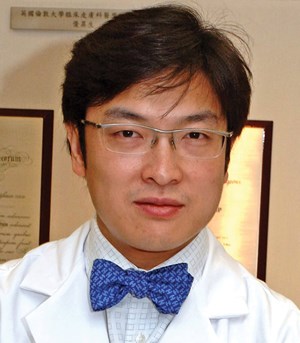We spoke with Dr Henry Chan, President of the American Society for Laser Medicine & Surgery (ASLMS), about his career and the society’s plans for this year.

Can you tell us a little bit about what led you into the field of dermatology and what have been the highlights so far?
I had bad eczema as a child and soon after entering medical school in London, I developed an interest in dermatology. As a medical student back in 1987, I spent three months as an elective student at Yale. I had the pleasure to meet Dr Tina Alster and Dr Seth Orlow and even now, we still keep in touch. In the mid-90s while I was training at St Thomas’ Hospital in London, I started to learn laser surgery. Then, in the early 2000s, I met Dr Rox Anderson and Dr Dieter Manstein at various academic conferences including the ASLMS annual meetings. We gradually established a close working relationship, and the rest was history.
What advice would you offer to those following in your footsteps?
My advice to those who wish to follow in my footsteps is to follow one’s interest. If one follows one’s heart, then working every day is joy in life rather than a burden.
You are widely published – looking back over your publications, do you have any personal highlights, or projects you have been particularly proud of?
My work in pigmentary conditions such as Nevus of Ota or the use of laser to prevent post-inflammatory hyperpigmentation among skin of colour are works that I believe have a significant impact on clinical practice and in doing so, help to improve patients’ care.
You are the current president of ASLMS. Do you enjoy this role and what have been your main aims?
It is my greatest honour to serve as the President of ASLMS and together with my executive council, we have been driving hard to improve the standing and reputation of this great organisation. I do intend to carry out my campaign promises to expand our international programme and promote international membership. Because of COVID-19, this has not proved to be easy as international travel to meetings has been much reduced. We are exploring Zoom meetings with international audiences as well as translation of our online learning material to languages such as Spanish as a pilot study.
Of course, the COVID-19 pandemic has made life very different for everyone; how has the society supported its members during the crisis?
Recently, we have performed a membership survey and found that over 80% of respondents said that ASLMS programming is an important resource to help meet their continuing medical education (CME) needs. The top three professional challenges our members are currently facing include staying current on the latest research regarding new treatments and devices, sourcing and / or cost of new devices and finally, time management and work / life balance. To support our membership’s need, we have promoted our online learning centre with many courses that are suitable for different levels. The 24 Hours of Lasers and Energy-Based Devices online event took place the weekend of 28-30 January 2022 and involved speakers from all over the world. I am working closely with Dr Brian Wong, the Chief Editor of our official journal (Lasers in Surgery and Medicine) to ensure success of our global events. We also have provided feedback to our industrial partners regarding the issue of sourcing and / or cost of new devices.
In 2022 the ASLMS Annual Conference will return to a face-to-face format in San Diego in April. Can you tell us about the themes and potential highlights of the event?
I am very much looking forward to our Annual Conference in 2022, which will be the first in-person meeting since 2019. The overall programme chairpersons, Dr J Stuart Nelson and Dr Fernanda Sakamoto are working very hard to ensure the great success for this meeting. The meeting will consist of both CME and non-CME activities and in doing so, will promote research, education and improve clinical care in the biomedical application of laser and energy-based devices. We have secured prominent keynote speakers of the highest scientific calibre, including Ardem Patapoutian, PhD, the recipient of the Nobel Prize in Physiology or Medicine in 2021. Dr Parapoutian will share how his laboratory identified and characterised the molecules involved in sensing pressure. These proteins play an essential role in sensing touch, pain and regulating blood pressure. We are also excited to announce our other keynote speaker is Bruce Tromberg, PhD, Director of the National Institute of Biomedical Imaging and Bioengineering (NIBIB) at the National Institutes of Health (NIH). I do believe this coming conference will be of top tier and in doing so, meet the expectations of our membership.
And finally, if you have any spare time, how do you like to relax?
I am a horse racing enthusiast and in my spare time, I serve as a steward of the Hong Kong Jockey Club which is also one of the largest charitable foundations in the world.
Many thanks for your time!
SAVE THE DATE
ASLMS Annual Conference
27-30 April 2022, San Diego, USA
www.aslms.org/annual-conference-2022
Comments are welcome
If you would like to comment on this article please contact:
Chris@pinpoint-scotland.com




